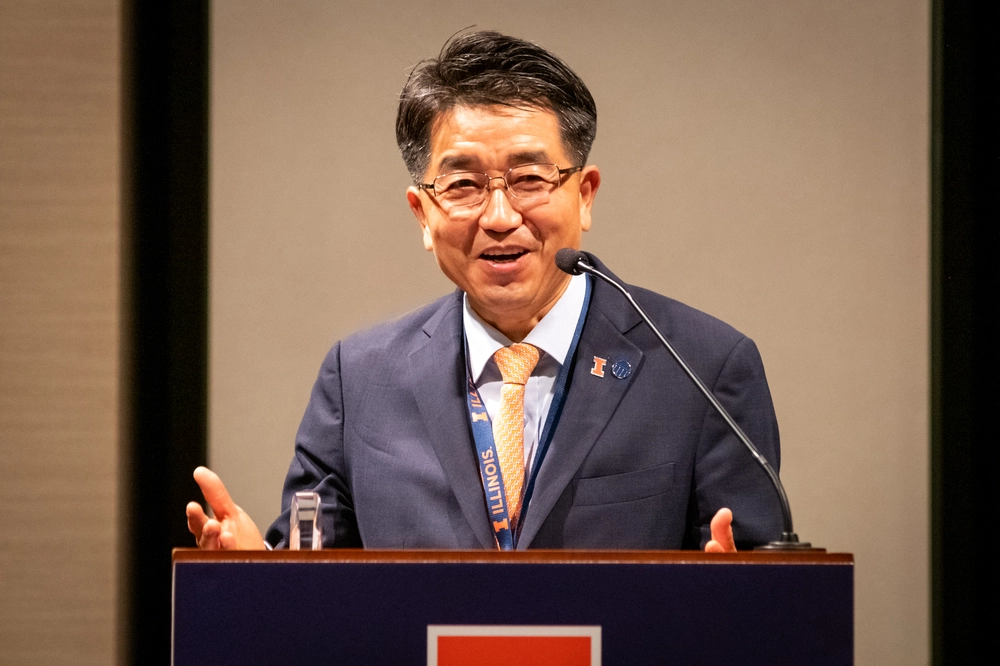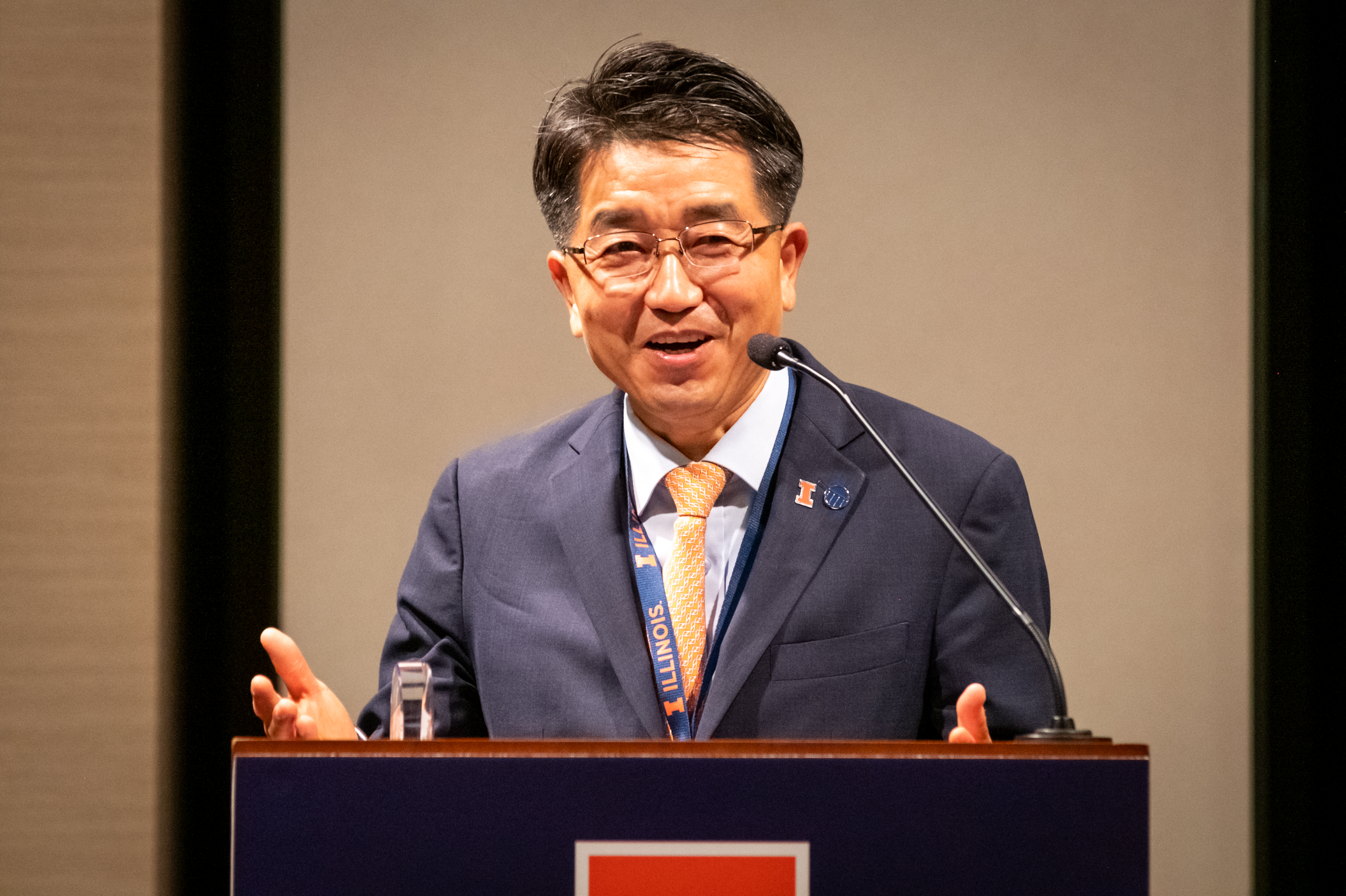

As director of the Center for Nanoparticle Research in the Institute for Basic Science at Seoul National University in South Korea, Dr. Taeghwan Hyeon (PhD, ’96, Suslick) leads efforts to develop uniformly sized nanoparticles. Measuring 1 to 100 nanometers in diameter, nanoparticles offer increased strength and durability, as well as improved electrical conductivity, over traditional materials. This makes them better suited for applications such as foldable-screen LED cell phones and the COVID-19 mRNA vaccine.
“I am basically a synthesis guy,” Hyeon said. “I like making new materials.”
Hyeon is a pioneer in the field of nanoscience and has worked tirelessly throughout his award-winning career to develop groundbreaking discoveries.
His mentor and Ph.D. advisor, Illinois research professor of chemistry Kenneth S. Suslick describes Hyeon as “truly one of the founding fathers of inorganic nanomaterials,” noting that he uses a generalized synthetic heat-up process to create uniform nanoparticles.
Hyeon is perhaps most famous for this generalized, but simple, synthetic method of making nanometer-sized particles that are extremely monodispersed in size through the ‘heat-up process.’ His nanoparticles have found their way into applications as diverse as fluorescent tattoos and a life-saving plastic mesh that encases the human heart during surgery.
Hyeon received the university’s 2025 Madhuri and Jagdish N. Sheth International Alumni Award for Exceptional Achievement and returned to the Illinois campus in Spring 2025 to receive the award and deliver the Sheth Distinguished Alumni Lecture. During his talk, Hyeon described himself as a “dreamer” who seeks collaborators to help him answer the question, “What am I going to do with this?”
“I’m not an expert in cancer. I’m not an expert in MRI. But I can find colleagues who are. That’s how I started collaborations with professors in hospitals and in oncology medicine,” he said.
Hyeon often finds his future collaborators on the tennis court. Because of Korea’s limited court availability, he plays a lot of doubles, which spurs his networking opportunities.
“I play a lot at the SNU campus,” he said. “Who am I going to play with? Professors! After tennis, we go to a pub together, talk and then…we start collaborations!”
To hear Hyeon tell it, this approach sounds somewhat chummy. But the award-winning scientist who has published more than 350 papers with a remarkable 70,000 citations has strict standards.
“My collaborators have to be the best,” he said. “When best meets best, the best of the best is produced."
Hyeon is a member of the National Academy of Engineering of Korea and the Korean Academy of Science and Technology, he was elected to the U.S. National Academy of Engineering (NAE) in 2024. As a result of his research conducted alongside his research group, Hyeon received numerous national and international awards and recognitions during his career such as the Korea Science & Technology Award from the South Korean President in 2016. He has also been recognized by the Swedish Royal Academy of Engineering Sciences, Royal Society of Chemistry, and Materials Research Society.
He was also the first associate editor of the Journal of the American Chemical Society, the world’s most prestigious chemistry journal, a position he held from 2010 to 2020.
Hyeon was born in Dalseong County, Daegu, South Korea. He received his B.A. and M.S. degrees from SNU in 1987 and 1989, respectively.